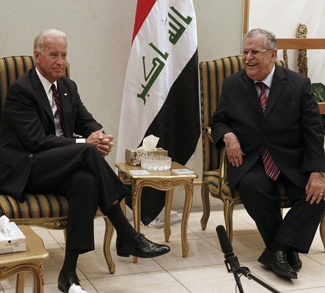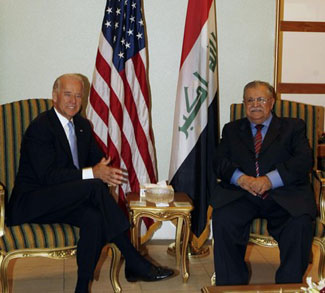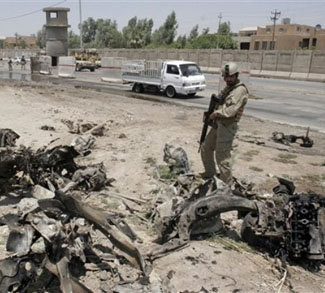As expected, President Obama has confirmed that August 31st will mark an end to combat operations in Iraq. However, it is commonly accepted that his announcement is more about honoring campaign promises than reacting to the reality on the ground in Iraq.
Although some media sources interpreted President Obama’s speech as some kind of turning point, the ‘end to combat operations’ stands as more of a semantic sleight of hand than a practical policy change. 50,000 troops will remain stationed in Iraq with the mandate to assist Iraqi forces and protect US interests until the end of 2011. That translates into 94 bases that will remain in Iraq long after much of the previous standing force is transferred to Afghanistan or back home to the United States.
So, despite some misleading headlines which popped up in various international media sources, the US military is still very much entrenched in Iraq until the end of 2011. Furthermore, their involvement being ‘limited’ to the protection of US interests is moot because of the nebulous nature of defining said interests. Broadly speaking, ensuring political stability in Iraq is tantamount to protecting US interests, thus it’s not like the remaining troops will have their hands tied in their day-to-day operational capacity.
The speech has been interpreted in several ways by media sites on the internet. Peter Feaver wrote an interesting post over at the Foreign Policy Blog pointing out the political motivations that underpin President Obama’s speech:
It was disappointing because it was yet another missed opportunity. He could have shown real statesmanship by acknowledging he was wrong about the surge. He could have reached across the aisle and credited Republicans who backed the policy he vigorously opposed and tried to thwart, a policy that has made it possible (but by no means certain) to hope for a responsible end to the Iraq war. He could have told the truth about his Iraq strategy, that what he has pursued thus far has not been what he was arguing for in the campaign — that would have involved the departure of all U.S. troops by mid 2008 — but rather he has followed, in a more or less desultory fashion, a script written in the status of forces agreement negotiated by President Bush and Prime Minister Maliki.
Ha’aretz posted a piece that highlights the danger of fast-tracking towards ‘mission accomplished’ given the political vacuum that is continuing to destabilize Iraq:
With the absence of an agreed-upon government and with political rivals threatening that the situation could deteriorate into renewed civil war, the political vacuum gives Iran space to interfere in Iraq’s affairs. Iran wants there to be a prime minister in Iraq who will be an Iranian ally and follow Iranian orders. Iran prefers incumbent Shi’ite Prime Minister Nouri al-Maliki over Iyad Allawi, a secular Shi’ite who is friendly with the U.S. and in close contact with the CIA.
And finally, Esquire posted an interesting article entitled, “Five things Obama won’t tell you about the end in Iraq”- a top five list that focuses on deficiencies within the Iraqi security forces.
Zachary Fillingham is a contributor to Geopoliticalmonitor.com



